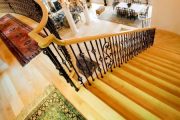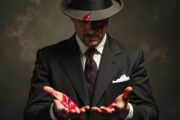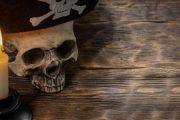One day, Eduardo confided to him that he didn’t like his own name. He did not like being called Eduardo. It did not ‘fit’ in an English-speaking school, he said.
‘I am Edison. You know. I’m bright, like a light! Edison the light-bulb, Edison the Genius!’
‘You mean, like Thomas Alva Edison, the inventor of the light bulb?’
‘That’s the man, Stan! The light shines in the night, so you have no fright! Hey-ho, I’m so smart.’
Francis squinted at him amid the bougainvillea in the sunlit glare of the open-air amphitheatre. It was an incongruous pseudonym. Eduardo was one of the dumbest kids in class, but politeness prevailed, and Francis nodded his understanding.
As if reading his mind, Eduardo, alias Edison, muttered, ‘I’m not smart like you. What are you reading?’
Embarrassed, Francis hesitated before showing him the ponderous biography of Martin Luther which he had found heavy going and would later abandon. In Francis’ world, there were two types of people: the elite, consisting of sensitive souls like himself, and clods and philistines like Eduardo.
‘Is it a good story? Lots of action? Fighting? Car chases? Brrrm, brrrm!’
‘Well, it’s not actually a story.’ He sighed. ‘It’s a biography, a sort of — a life-story of the man who…’ he paused, foreseeing the difficulty, ‘was the founder of Protestantism… you know…the Protestant church? In 1517.’ Eduardo’s face was blank. Francis knew he sounded priggish. He was unequal to the task. Why couldn’t he have been reading the Hardy Boys stopping a runaway truck, or Tom Swift fighting Martians? He persisted.
‘Luther was German.’
‘Hey, I’m German!’ His perplexity became a radiant smile. It was true. Eduardo-Edison’s surname was Pulvermacher, but he spoke fluent Spanish, his father was a prominent Caracas car dealer, and the family had long-established roots in the country, unlike Francis’s family of temporary residents. Edison continued. ‘And we’re Proddingdents. I think,’ he added dubiously. ‘We don’t go to church, so we must be.’ Then, he asked, ‘Wanna come to my place on Saturday? We got a pool…’
Thunderstruck and appalled by the offer, Francis thanked him, and said he’d check with his parents.
‘Sure, Francis Drake! Aye, aye Capitan!’ And Edison saluted him ironically.
As Saturday approached, Francis kept finding reasons not to go to Edison’s house. He was sick, he had too many chores to do, too much homework to finish, a book he wanted to read, brothers to play with, a family to stick fiercely to. Mr. Stapleton chided his son gently, pointing out that he’d made a promise, if only half-heartedly. He might even enjoy himself immensely. Besides, Edison, as they now all called him, had phoned earlier to say that his dad, Sr. Pulvermacher himself, with whom the Stapletons had a nodding acquaintance, would be arriving to pick Francis up at half-past ten. True to his word, Edison’s father, tanned, athletic and flamboyant in reflecting aviator sunglasses, drew up at the kerb at exactly ten thirty, at the wheel of a sparkling white Alfa Romeo convertible. He waved languidly to the Stapletons on their balcony. In his hurry to get downstairs, Francis collided with Rosita the maid. ‘Bye, Mum, bye Dad, bye hermanos!’ he called, unconsciously using Edison’s name for his own three brothers.




